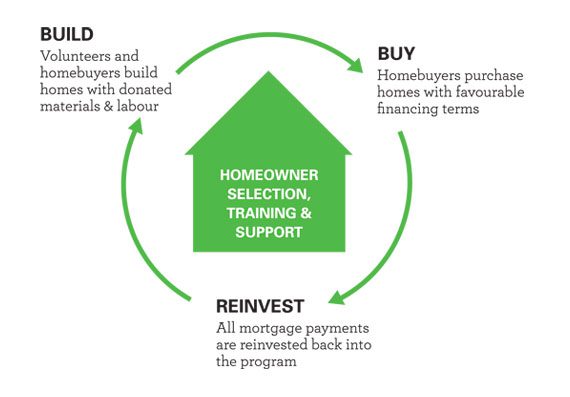There are three main criteria to apply for a Habitat Home: ability to pay, need for housing, and willingness to partner with Habitat. To qualify you must have live currently in Whitman or Latah County; be living in inadequate housing (some examples: high rent, overcrowding, structural issues, high power bills); and be willing to fulfill partnership obligations, including working 300-500 hours of sweat equity helping to build your home. The number of sweat equity hours required depends on the number of adults in your household.
Your income must fall within 30-80% of Area Median Income for Latah & Whitman Counties according to the Housing and Urban Development Administration (HUD). The specific amounts change each year and vary depending on family size. See the chart above for this year's numbers.
Palouse Habitat does not require specific credit scores or perfect credit history. However we cannot build with individuals or families who have filed bankruptcy within the past three years, have over $2,000 in charge offs or would have over 43% in debt to income ratio with a Habitat home added to their expenses.
If your application meets the initial criteria, a selection committee member will review your credit history and check references, and assess your debt to income ratio. The total ratio of debts to income cannot be over 43%.
Examples of income Palouse Habitat will consider when determining if your income meets our range: income from annual or seasonal employment, disability, child support, food stamps and other government assistance. Employment must be reasonably expected to continue for two years. However, when determining debt to income ratio, any income dedicated to a specific purpose, such as food stamps, cannot be considered.



